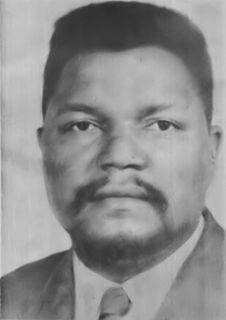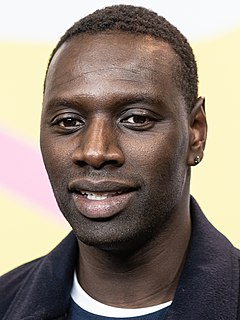A Quote by Justin Simien
Any time a black person has the audacity to tell everybody else that they're also human beings, they are confronted with all kinds of malice and violence and ill will. It's been that way since black people were brought to this country.
Related Quotes
When someone asks me about violence, I just find it incredible, because what it means is that the person who’s asking that question has absolutely no idea what black people have gone through, what black people have experienced in this country, since the time the first black person was kidnapped from the shores of Africa.
The violence that we had in the 60's was limited. The next time it will be unlimited because the violence in the 60's was a struggle for human dignity and for human rights. The next struggle will be a struggle for survival and it will not just be limited to Black people or Black against white, but it will be the poor people, the masses of the people of the country, struggling for the right to live or the right to survive.
White people scare the crap out of me. I have never been attacked by a black person, never been evicted by a black person, never had my security deposit ripped off by a black landlord, never had a black landlord, never been pulled over by a black cop, never been sold a lemon by a black car salesman, never seen a black car salesman, never had a black person deny me a bank loan, never had a black person bury my movie, and I've never heard a black person say, 'We're going to eliminate ten thousand jobs here - have a nice day!'
We've been fighting our whole lives to say we're just human beings like everyone else. When we start separating ourselves in our work, that doesn't help the cause. I've heard it for years: 'How do you feel being a black filmmaker?' I'm not a black filmmaker, I'm a filmmaker. I'm a black man, I have black children. But I'm just a filmmaker.
I wanted to make sure the focus [in The Land] was on human beings themselves and their decisions, but still connected to the urban environment that people associate as being black. I think I was able to make a film without commenting on "black this or black that" and you still feel the presence of it. There's no one character who's saying "we're all black and we're all in this struggle." It's that you just feel it. Some of that is because we get the sense from a lot of independent films that black people struggle all the time.
There is still an assumption among many people that to be black is to be lower class. In the last fifteen to twenty years, perhaps even further back than that, there's also been an explosion of a very wealthy black class in the United States, but those people are often treated as special cases: they're athletes, entertainers. Jay-Z. Basketball players. The country metabolizes the fact these rich black people exist, but it seems only to reinforce the idea that every other black person is limping along in poverty.
I never thought about being the first black actor to win, even though everybody else talked about that. If I stop to think as a black actor, people will see me differently. If I play as a black actor, people will only see that. I think my key was to perform as an actor, not as a black actor. And after winning the Cesar, I was an actor with a Cesar. there are many more adjectives to describe who I am. I'm not only black.





































